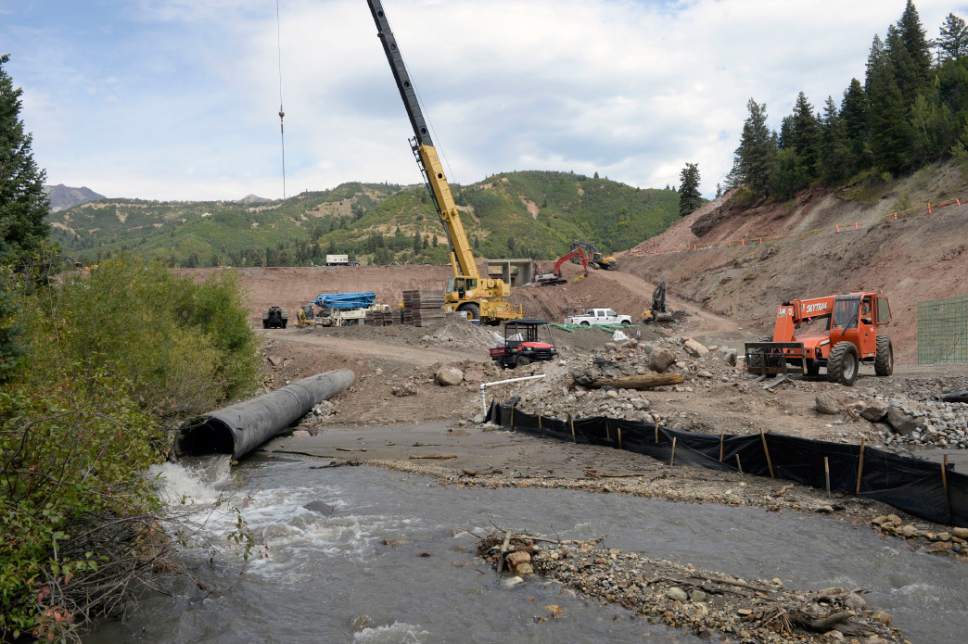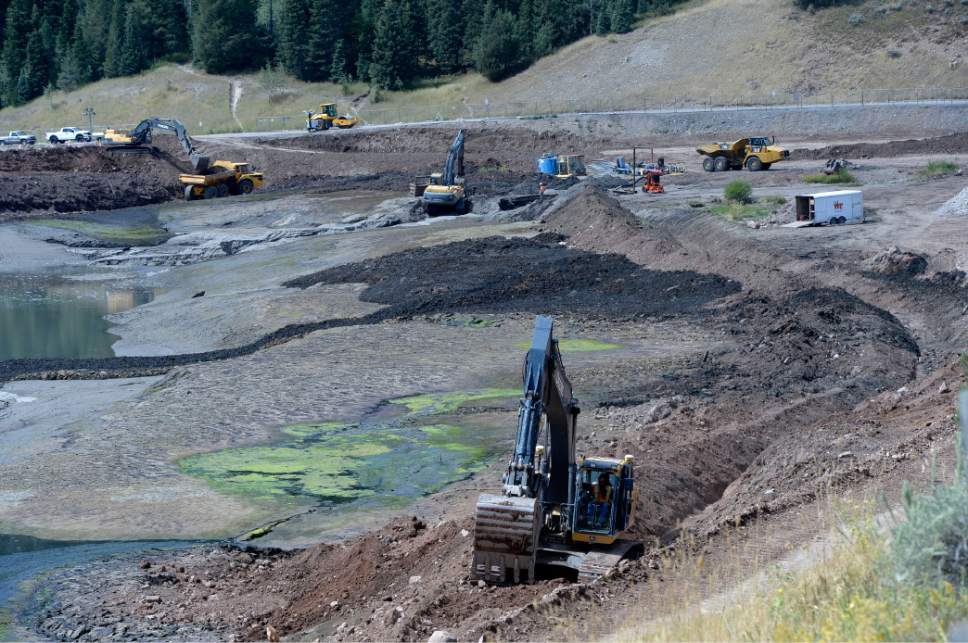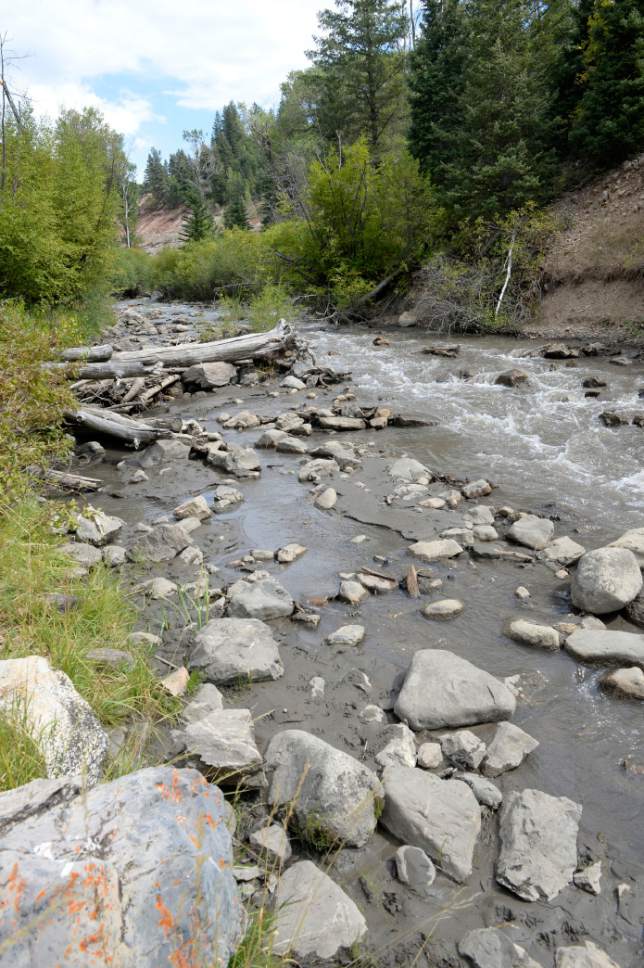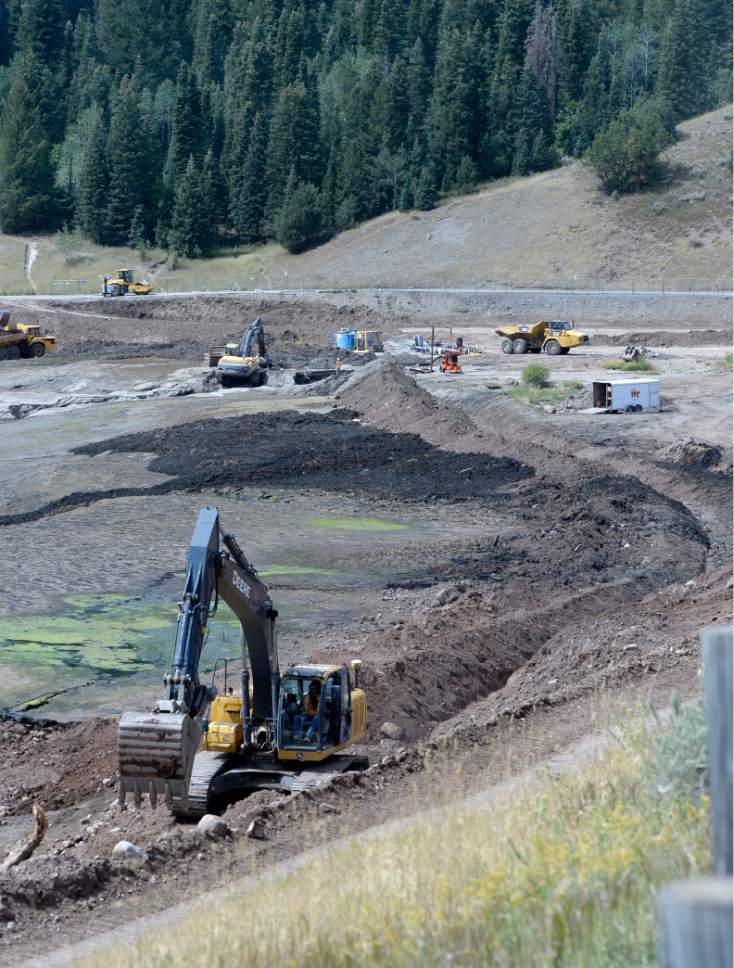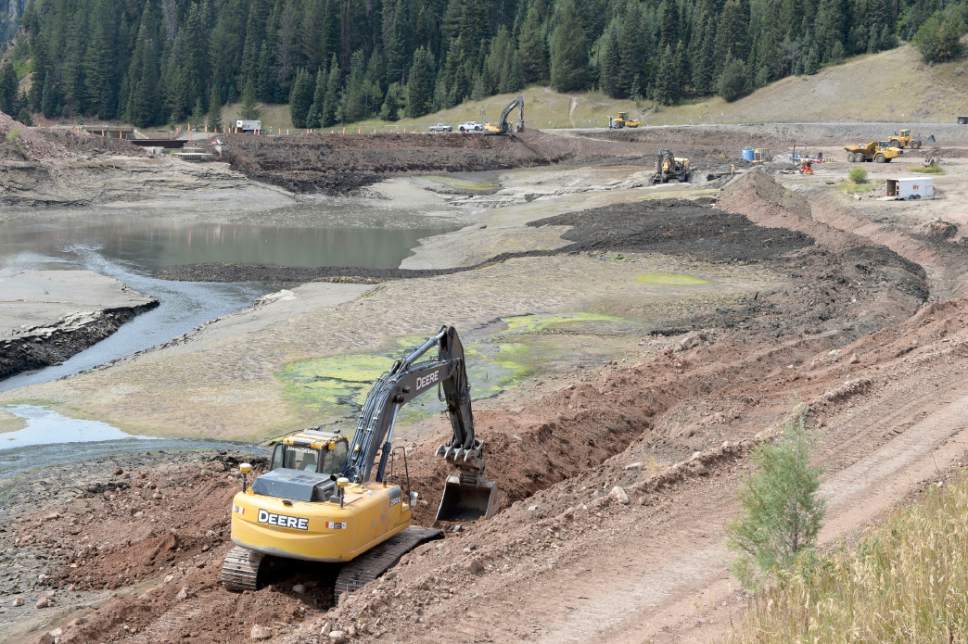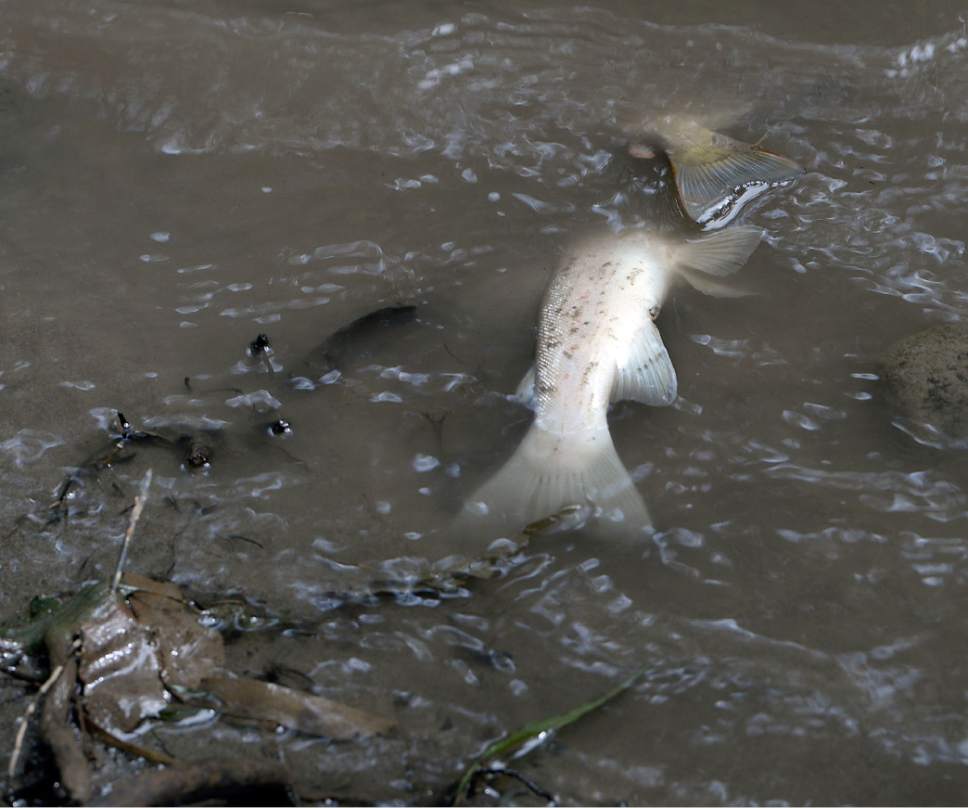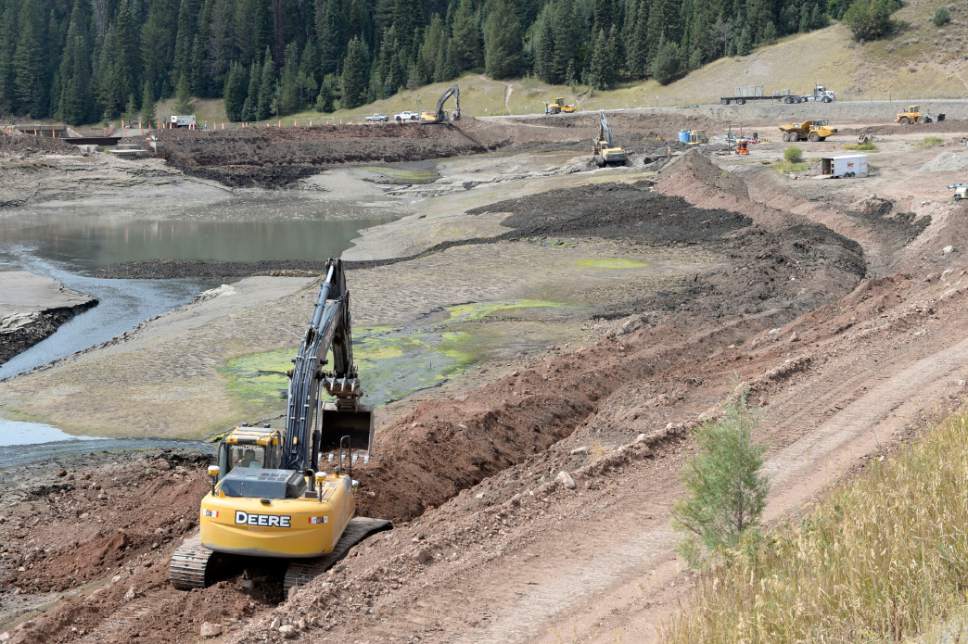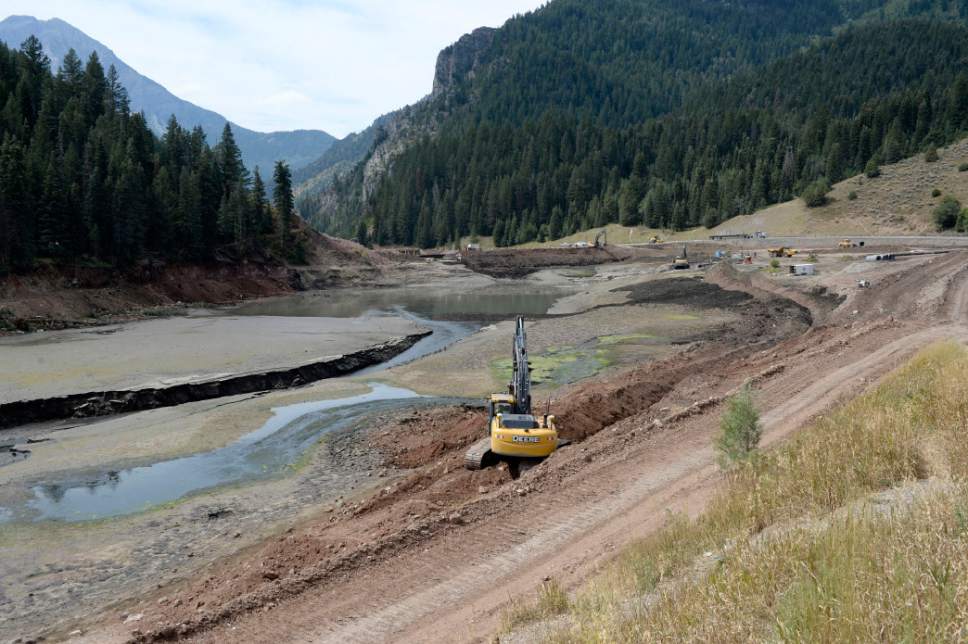This is an archived article that was published on sltrib.com in 2017, and information in the article may be outdated. It is provided only for personal research purposes and may not be reprinted.
North Utah County water officials have agreed to pay the state more than $145,000 for discharging sediment laced with heavy metals into the American Fork River below Tibble Fork Reservoir last fall.
The North Utah County Water Conservancy District, which owns and operates the reservoir, will pay a $52,500 civil penalty for the incident, in addition to more than $92,000 to reimburse the state for costs incurred during the Division of Water Quality's response to the spill.
Walt Baker, director of the Division of Water Quality (DWQ), said the penalty was based on a per-day schedule of fines for noncompliance, and then reduced somewhat because the water district did not have a history of violations.
But the $52,500 fine is still "on the large side" of penalties issued, Baker said, because the division believes the incident "could have been avoided."
"Some of the issues that resulted in this discharge could have been addressed beforehand," he said. "It could have been minimized."
Paul Burnett, director of Trout Unlimited's Utah Water and Habitat Program, said his organization would review the settlement to determine whether it believed the fine was adequate.
"Our concern is that we want to make sure that within the settlement, whatever the penalty for the sediment dump is, it reflect what the damage was to the actual system,' he said.
Baker said he believed the incident, and the water district's failure to notify the state in a timely manner, were a consequence of negligence. The water district, he said, is run by a board of volunteers who were unaware of state regulations. The water district has cooperated since the incident, he said.
The water district has also agreed to continue monitoring the quality of the river until concentrations of metals return to pre-spill conditions. Baker said the DWQ does not yet have enough data to be sure the river has returned to "normal."
"This whole area is a historic mining district," Baker said, "and so we are going to see elevated levels of metals in just the natural environment, because that's where they are."
The DWQ is conducting a long-term study on the discharge of heavy metals from mines upstream of the reservoir.
The DWQ also required the water district to remove contaminated sediments from pools below the reservoir and other areas where they were deposited after the spill. Baker said 46 truckloads were removed in advance of this spring's runoff.
According to the notice of violation issued last September, the water district began to release water from Tibble Fork Reservoir on August 19 in order to facilitate construction at the dam. As the water level dropped, sediment at the bottom of the reservoir began to erode, discharging an estimated 5,000 cubic yards of sediment into the American Fork River.
The water district, according to the notice of violation, did not inform the state the spill had taken place within 24 hours, as state statute requires.
The state learned about it through a third party.
It was known before the incident that the sediment at the bottom of Tibble Fork Reservoir was contaminated with arsenic and lead from historic mines upstream. Arsenic, lead, mercury and zinc were detected in samples collected from the American Fork River below the reservoir after the sediment was discharged into the river.
The Utah Division of Wildlife Resources estimated that approximately 5,250 rainbow and brown trout died as a result of the incident. Wildlife Resources is collecting samples of fish to determine whether anglers should be warned against eating anything they catch in the reservoir or river.
However, Baker said he does not believe the spill contained concentrations of metals high enough to pose a risk to human health.
Public comment regarding the settlement is due to Kevin Okleberry at kokleberry@utah.gov or P.O. Box 144870, Salt Lake City, Utah 84114-4870 by the close of business on May 1. Burnett said Trout Unlimited would be providing comment on the matter to the DWQ during the public comment period.
After the comment period, the settlement will have to be approved by the state Board of Water Quality because the amount exceeds $25,000.
Twitter: @EmaPen


